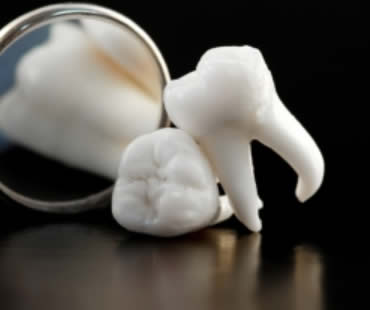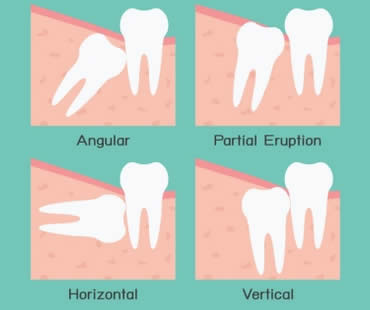
by Dr. Adkins | Jun 25, 2021 | Blog, Dental Topics 1, Family Dentist
Your smile can be one of your strongest assets, or it can be one of your biggest detriments if you don’t take care of it! Studies show that people are more likely to underestimate your age if you are smiling. On the flip side, a smile containing yellow or damaged teeth has the opposite effect of making you appear older. Luckily, there are many options available to help. Here are some tips for achieving an awesome smile.
Don’t forget to floss
Many people are in the habit of brushing their teeth every day, but flossing is often neglected. It’s the best way to get rid of plaque and bacteria in those hard-to-reach areas around your teeth. Otherwise, food particles and bacteria will build up and harm your teeth and gums.
Get your calcium and Vitamin C
Strong teeth and jaw bones are a sure way to a healthy mouth. Calcium, most often found in dairy products and vegetables, will help you develop strong teeth and bones. Vitamin C, often found in citrus fruits and vegetables, also strengthens teeth by repairing tissues and preventing bacteria from accessing your gums.
Avoid food and drink enemies
Some foods and drinks have a negative effect on your oral health. Avoid sugary foods, sodas, and sticky items. Foods high in acid content can weaken your tooth enamel. Also steer away from foods and beverages that commonly stain teeth, like coffee, red wine, and dark berries. If you consume staining foods, perform good dental hygiene afterwards.
Give professional bleaching a try
Teeth whitening at your dentist’s office is effective and provides quick results.
Whiten your teeth at home
A less expensive whitening option is done at home with products you can purchase at your drugstore. Whitening strips and toothpastes can help brighten your smile, although you have to be more patient than with the professional methods.
Learn makeup tricks
Believe it or not, your makeup techniques can help your smile appear brighter. Lipstick shades with a blue undertone and bronzer make ups that darken the skin both provide a greater contrast to your teeth and help them look brighter.
Schedule your appointment at our McDonough dental office

by Dr. Adkins | May 28, 2021 | Blog, Dental Topics 1, General Dentistry
What you eat and drink can affect your oral health. A balanced diet will boost your body’s natural immune system, helping to lower your risks for oral problems. There are also certain foods and drinks that you should avoid in order to pave the way for healthy gums and strong teeth. Read on to learn how to ensure that your smile is safe and strong.
Cut down on snacks
Try to limit snacking between meals. The more often you eat, the more bacteria is stimulated and more acid is created. It is especially harmful to snack on sweet or starchy foods, which can harm your teeth and gums more quickly.
Limit sugar
Avoid foods and drinks that are high in sugar. It can stick to your teeth and if not removed promptly and thoroughly, can lead to tooth decay.
Watch what you drink
Drink plenty of water, and avoid sodas and fruit juices. Both of these can be sugary and acidic, which can harm your tooth enamel and cause decay.
Maintain a healthy diet
Try to eat a balanced diet consisting of the five major food groups. A well-balanced diet provides the vitamins, minerals, and other nutrients that your teeth and gums need. Fresh vegetables and fruits, and foods rich in calcium, are good choices for your oral health.
Practice good oral hygiene
Contact our McDonough dental office to learn about good dental hygiene techniques that will help you prevent tooth decay and gum disease. Brush your teeth at least twice a day, floss daily, and see your dentist for regular checkups.
If you need a dentist in McDonough contact us today

by Dr. Adkins | Apr 16, 2021 | Blog, Dental Topics 1, Root Canal Treatment
The goal of root canal therapy is to relieve pain, not cause it. The pain you experience before a root canal is the result of damage to the tissues in the tooth. Root canal therapy removes that damaged tissue, therefore relieving the discomfort you feel. If you are still experiencing tooth pain after undergoing a root canal procedure, it could be an indication of a problem with the treatment.
While mild discomfort is to be expected during the root canal healing process, if the pain continues or becomes more severe, it is likely an indication of a problem. There are several reasons for tooth pain after root canal treatment:
- The tooth has an extra canal that was not cleaned and filled, meaning there is an extra physical root.
- The tooth has a small, tight accessory canal that is difficult to locate on x-rays or hard to access with the necessary tools.
- The tooth is fractured due to the damage and weakened state caused by the original decay and the access cavity that is created to begin the root canal treatment.
- The root canal has become reinfected.
- The small files used by your dentist to clean out the pulp of the tooth sometimes break, resulting in a failed root canal treatment.
In the days immediately following root canal therapy, it is normal to experience some tenderness of the tooth or surrounding gum. This discomfort should be easily managed with over-the-counter painkillers and should subside in a few days. If the pain does not ease in a few days or becomes more severe, contact your dental professional immediately to access your symptoms and determine if you are having root canal complications.
We treat patients from McDonough and the surrounding area

by Dr. Adkins | Apr 2, 2021 | Blog, Dental Topics 1, Oral Surgery
Wisdom teeth are the third set of molars, and usually emerge in the late teens or early twenties. Standard dental practice is to remove wisdom teeth prior to them being fully formed when the roots have not yet had a chance to develop and fully root into the jaw. Younger patients usually have an easier recovery from surgery and many dentists believe early removal prevents future dental problems associated with wisdom teeth.
If your wisdom teeth were not removed as they emerged, there are some signs and symptoms that would indicate the need for extraction including:
- Wisdom teeth that are impacted, which means they have become trapped in the jawbone or gums.
- Wisdom teeth that are emerging at an awkward angle, causing pressure on adjacent teeth.
- Wisdom teeth that do not fit in your mouth, causing crowding of the surrounding teeth as well.
- Wisdom teeth that are suffering from decay or disease caused by the inability to keep them cleaned properly.
- Wisdom teeth that have developed fluid-filled cysts near the gumline.
- Wisdom teeth that are causing pain due to any of the above reasons.
The decision about whether or not to remove your wisdom teeth should be made in consultation with your dental professional. Your dentist or oral surgeon can assess the position and health of your wisdom teeth and make a recommendation for treatment.
If extraction is recommended, they may choose to extract one tooth or all four molars at once. Recovery from the outpatient procedure takes just a few days, and you will quickly be back to normal. Contact our dental office if you are experiencing any of these symptoms listed to determine if you should consider wisdom tooth removal to ensure your future good oral health.

by Dr. Adkins | Mar 19, 2021 | Blog, Dental Topics 1, General Dentistry
Many people think all that’s required to maintain good dental health is to floss and brush regularly. Unfortunately certain oral habits can negatively affect teeth, causing substantial damage. Trying to quit or at least curb these habits will help keep your teeth healthy and strong. Habits to avoid include:
Chewing Ice Cubes
Most of us have crunched on an ice cube on a hot summer’s day and thought nothing of it. Teeth are covered in a hard substance called enamel, but continually biting on items such as ice cubes or chewing on pencils and pens can eventually cause tiny fractures in teeth. Over time these fractures will become larger and you might require costly restorative work.
Nail Biting
Nail biting damages your nails and your teeth. You risk chipping or fracturing teeth, especially if they have been bonded or veneered. In addition, every time you put your fingers in your mouth you are transferring bacteria, increasing the risk of illness and infection.
Over Brushing Teeth
Some people think the harder they scrub their teeth the cleaner they will become. In fact you don’t need to brush your teeth particularly hard, and it’s best to choose a soft bristled toothbrush. Ask your family dentist in McDonough if you’re not quite sure which brush is best.
Clenching and Grinding Teeth
Clenching and grinding is also known as bruxism and can cause teeth to become worn down, chipped and damaged, or may even lead to them becoming loose. The damage caused by bruxism can extend to your face, head and neck, and sufferers will often have headaches. Your general dentist in McDonough can provide you with a custom-made night guard to prevent your teeth from biting together while you sleep.
Overusing Whitening Products
Most of us want to have a healthy white smile, and tooth whitening is one way to achieve this. Unfortunately some people take this too far and will overuse whitening products, causing tooth sensitivity and damaging tooth enamel. It’s best to book a professional tooth whitening treatment for the brightest and safest results.
Our dental office is located in McDonough

by Dr. Adkins | Dec 18, 2020 | Blog, Dental Topics 1, Oral Surgery
Wisdom teeth, your third set of molars, are named that because they are the final teeth to erupt. They usually come in between ages 17 to 25, and are located in the very back of your mouth on the top and bottom. Your dentist will examine you to find out if your wisdom teeth are properly positioned and healthy. If they aren’t, your dentist will recommend removal.
How do you know wisdom teeth should be removed?
Some of the signs there is a problem with your wisdom teeth include pain, infection, cysts, gum disease, damage to nearby teeth, and tooth decay. If you experience any of these symptoms, see your dentist for an examination.
What are impacted wisdom teeth?
Sometimes your teeth just don’t have room to grow in properly. They can erupt at angles within your jaw, sometimes even horizontally. If wisdom teeth aren’t able to erupt normally they can become trapped, or impacted, inside your jaw. Symptoms of impacted wisdom teeth are pain, infection, and swelling. When teeth are impacted, they can lead to serious problems. Many dentists want to avoid impacted teeth and therefore remove your wisdom teeth before they erupt or grow too big.
Are there less obvious reasons to remove wisdom teeth?
It’s not always clear when these teeth way in the back of your mouth are causing problems, or might in the future. Many dentists remove them in teens or young adults so they don’t cause problems later, or become too firmly planted in the jaw. Also, sometimes wisdom teeth are removed as part of orthodontic, periodontal, or restorative treatment plans.
What happens if I don’t have them removed?
Some dentists prefer to wait and see what happens with time to your wisdom teeth. Make sure you continue to have these teeth monitored, because the risk of problems doesn’t go away with age. Removing wisdom teeth isn’t always necessary, because if there’s room in your mouth and they come in properly, they work just like any other teeth. The key is to watch them to make sure problems don’t arise in the future.
Dental office for wisdom teeth removal








 (470) 665-5292
(470) 665-5292  E-Mail Us
E-Mail Us 
